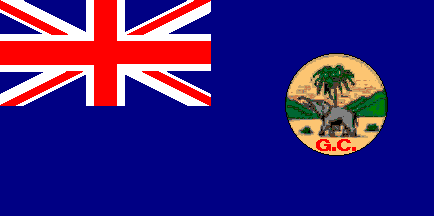On July 27, 1955 the Parliamentary Select Committee studying the issue, rejected federalism for a centralized unitary government. The Select Committee also rejected the request from the opposition for a bi-cameral parliament. The extra-parliamentary group advocating federalism, the National Liberation Movement (NLM) boycotted the talks. Nkrumah’s position was that federalism was simply a proxy for advancing tribalism in the service of the elite.
Prior to the meeting of the committee, in January 1955, political violence had erupted in Kumasi in response to the Governor’s ban on carrying weapons in that city. Several people were killed and many were arrested. In March 1955, the Northern Peoples Party (NPP) also announced their support for federalism. In spite of recommendation of the Parliamentary select committee, in August 1955, the Asante and Northern parties again presented a proposal for a federal form of government to the Crown.
Subsequently, Sir Frederick Bourne arrived in Accra in September to further study the issue and recommended that the independence constitution should “provide a substantial transfer of power from the centre to the regions”. The NLM refused to attend the All Party Achimota Conference scheduled to discuss the question of federalism they were proposing. The British Secretary for the Colonies called for an election, after which the assembly would vote on the constitutional impasse. On May 10, 1956 the Prime Minister Nkrumah’s home in Accra New Town was bombed while he was in a meeting with ministers of the government.
The Convention Peoples Party (CPP) won 70 of the 104 seats in the July 1956 elections for the new assembly. On August 3, 1956 the legislative assembly voted for independence with the name Ghana, within the Commonwealth with 72 votes out of 104. The Colonial Secretary announced that independence would be granted on March 6, 1957. On November 15, 1956, the assembly voted 70 to 25 to adopt a unitary form of constitution, which prompted the NLM and the NPP to send a resolution to Whitehall demanding separate independence for Asante and the Northern Territories. On November 10, 1956, the British Colonial Office issued a statement in opposition to the division of the Gold Coast and on December 18, 1956 the “Independence Bill” was passed by the British House of Commons, becoming law on February 7, 1957.
There was still no agreement on the constitution but after a visit to the Gold Coast by the Secretary for Colonies, on February 8, 1957 the Colonial Office published a draft of the compromise constitution which both Kwame Nkrumah and Dr. K. A. Busia endorsed on February 12, 1957. The next day, the Queen announced that Sir Charles Arden-Clarke would be the first Governor-General after independence.
